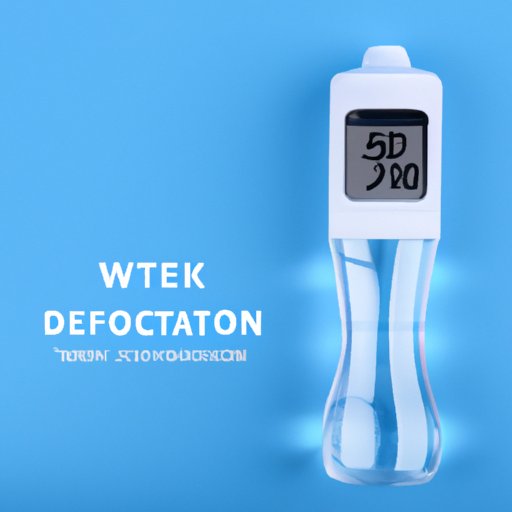
Introduction
Staying hydrated is essential for our overall health and well-being, yet many of us forget to drink enough water. Dehydration can cause a wide range of symptoms, from dry mouth to fever. In this article, we will explore how to understand and recognize symptoms of dehydration, how tracking your water intake can help, and prevention measures to stay hydrated.
Symptoms to Watch Out For
Symptoms of dehydration can be both physical and behavioral. Some of the physical symptoms include dry mouth, dizziness, and muscle cramps. You may also feel a sense of fatigue or confusion. These symptoms can affect daily life in many ways, from feeling sluggish during work to having trouble concentrating during daily tasks.
Time for a Drink
The amount of time since your last drink plays a significant role in your hydration levels. Even before experiencing the physical symptoms of dehydration, you may notice a decrease in mental clarity or alertness. This can affect your daily life, making it challenging to focus on tasks or even making simple decisions. Try drinking water throughout the day, even before you feel thirsty.
Hydration Tracking
There are many ways to keep track of your water intake, from using dedicated apps to carrying around a water bottle with measurable ounces. Tracking your bathroom breaks can also give you an idea of your current hydration level. Hydration tracking can help establish what level of water intake is necessary for individual needs, and it can help you monitor how much water you tend to drink during a certain period.
Signs of Severe Dehydration
If left untreated, dehydration can lead to more severe symptoms such as a rapid heartbeat, fever, or fainting. It’s essential to recognize the signs of severe dehydration early on, so you can take appropriate measures to remedy the situation. Comparing these signs to the more common symptoms like dry mouth or muscle cramps can help you understand the difference between mild and severe dehydration.
Connection to Medical Concerns
Dehydration can manifest in a few medical concerns, including headaches, kidney problems, and even high blood pressure. The body needs a certain amount of water to function properly, and not meeting daily fluid requirements can have a severe effect on your overall health. If you’re experiencing symptoms outside of dehydration or they persist despite drinking plenty of fluids, seek medical advice from your doctor.
Prevention Measures
Preventing dehydration doesn’t have to be difficult. Drinking water regularly during the day, avoiding alcohol and caffeine, and eating moisture-rich foods are great ways to ensure proper hydration. Keep a water bottle with you wherever you go, and set regular alarms to remind you to drink water throughout the day. Try incorporating these measures into your daily routine to make staying hydrated more manageable.
Conclusion
In conclusion, staying hydrated is a fundamental aspect of our health and well-being. Recognizing symptoms of dehydration, tracking your water intake, and taking preventative measures can all help prevent dehydration. By taking simple steps, like drinking enough water and avoiding certain beverages, we can ensure that our bodies stay hydrated and healthy.




